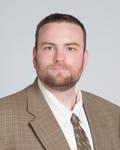Overview
Cleveland Clinic's Department of Infectious Disease offers a clinically oriented fellowship program with a broad exposure to every facet of infectious diseases. We feel our clinical experience is second to none. We emphasize clinical research for our fellows and carefully follow the inception and progression of the various research projects.
For those interested in transplant medicine, clinical microbiology training, and/or subspecialty areas within infectious diseases, this program offers intensive clinical training in these important areas. We strive to use the latest knowledge of adult educational processes and integrate an academic curriculum with robust clinical experiences.
Our fellowship program is accredited by the Residency Review Committee (RRC) of the American Board of Internal Medicine. The program was last reviewed by the RRC in 2018 and was fully re-accredited. The ID board pass rate for our fellows has been 100 percent for the past 20+ years.
Philosophy
The goal of the Infectious Diseases fellowship training program at the Cleveland Clinic is to train clinician-educators and clinician-scholars using the latest in educational techniques and adult learning theory.
We train fellows who are deeply committed to excellence in clinical medicine, who wish to contribute significantly to the field of infectious diseases as scholars, and who plan busy practices in complex tertiary (and quaternary) care centers in the United States and globally.
The secret to patient care is to first care about the patient.
We place the highest priority for fellowship training in the clinical months at the bedside. We do not consider the clinical months as "necessary evils" to be grouped together for 12 straight months, so that the real business of bench research can be performed uninterrupted. The clinical months are the showcase of our program. We consider the physician-patient interaction to be the heart of learning and the essence of what it means to be a clinician
Program Details
Curriculum
Our fellowship program is made up of six general fellows. This is a two-year fellowship with a potential option for a third year for more specialized training. Our programs emphasized clinical bedside training with consult services in both general ID and dedicated specialized services. Our consult services often include 2-3 resident doctors and a dedicated ID pharmacist.
Our inpatient consult services include:
- General Infectious Diseases.
- Neuro- ID.
- Infective Endocarditis.
- Immunocompromised and Transplant ID.
- Bone and Joint.
The two-year training schedule is as follows:
- Orientation 1 week.
- General ID 12 weeks.
- Transplant ID 8 weeks.
- Endocarditis 6 weeks.
- Bone and Joint 6 weeks.
- Rheumatology 2 weeks.
- Immunology 1 week.
- Hepatitis clinic 2 weeks.
- Research 26 weeks.
- Microbiology 4 weeks.
- Outpatient Clinic 10 weeks.
- Elective 15 weeks.
Didactics:
Our local conferences include:
- Problem based learning: twice a week dedicated time with the Program Director, discussing high yield Infectious disease articles, and board review
- Weekly Transplant ID lecture
- Weekly Internal Medicine Grand Rounds
- Weekly Infectious Disease Grand Rounds
- Weekly HIV Conference: Every Thursday (July- November). This hour-long conference tackles the basic concepts of outpatient HIV management, HIV resistance and opportunistic infections in people living with HIV
- Weekly Research curriculum: Every Thursday (November – June). Rotating between clinical statistics lectures, Journal Club and Fellow research updates
- Monthly local Granuloma Conference
- Weekly joint Pathology-ID Infective Endocarditis rounds
- Monthly joint Radiology-ID Musculoskeletal Conference
- Monthly Microbiology rounds
- Biannual combined Grand rounds: Neuro-ID, Rheum-ID, and Derm-ID Grand Rounds
- Optional department specific meetings: Transplant ID, and Infection Prevention
Our Multisite conferences:
- Joint Journal Club (CCF and University hospitals)
- Multisite Granuloma Conference (every other month)
- Multisite Transplant ID conference
Clinical training courses:
- SHEA IDSA 20-hour infection control course
- HIV specialist credentialing program
- STD course: a weeklong STD course
- Antimicrobial stewardship, led by our ID pharmacists
- Infection prevention workshop
Outpatient clinic:
Continuity clinic
The continuity clinic focuses on care for patients living with HIV and preexposure prophylaxis for HIV. Each fellow is paired with one HIV- clinic preceptor for the entire two years of training. A half day each week is dedicated to HIV care, screening and teaching.
Specialty Clinics
In addition to the weekly HIV clinic half day, our fellows spend a total of 10 weeks in the outpatient clinic. The focus is granuloma outpatient clinic, providing unique exposure to many nontuberculous mycobacterial inactions, TB and nocardia. Fellows also use this opportunity to see pre- and post-transplant patients in the outpatient setting and patients referred to the Cleveland clinic for evaluation of various complex pathologies
Research:
We continue to emphasize scholarly activities as an important aspect of training. We define research as "the production of new knowledge" and emphasize original research projects over other activities such as book chapters and topic reviews. Our program emphasizes pairing fellows with research mentors as early as possible.
We realize that I.D. fellow candidates have a wide variety of research backgrounds, some who already have a Ph.D. background and others who have never worked on independent research before. To meet this challenge, we hold a weekly research conference that alternates between clinical statistical methods lectures and fellow research updates.
The 26 weeks of research are evenly divided between the two years of training. Each fellow is expected to present at least an abstract at one of the national meetings. On average, our fellows publish 1-3 first-authored original papers during the course of their training.
Our fellows’ publications:
- Multiloculated cystic subcutaneous lesions in lung transplant recipient caused by Rhizopus species. Alabdely MH, Kovacs C. Int J Infect Dis. 2025 Oct;159:107995. doi: 10.1016/j.ijid.2025.107995. Epub 2025 Jul 25.
- The current role of maribavir for treatment of cytomegalovirus in transplant recipients. Vega Brizneda M, Boothankad Sharath D, Rust TJ, Yetmar ZA. Expert Opin Pharmacother. 2025 Sep 23:1-7. doi: 10.1080/14656566.2025.2564327. Online ahead of print. PMID: 40965288
- Invasive Fungal Infections in Orthotopic Heart Transplant Patients: Incidence and Risk Factors in the Modern Era. Hasan L, Thirunavukarasu Murugan L, Hsich E, Tong MZ, Brizendine KD. Clin Transplant. 2025 Aug;39(8):e70248. doi: 10.1111/ctr.70248. PMID: 40747869
- Surgical Site Infection After Intestine Transplantation: Risk Factors and Outcomes. Alabdely MH, Lum J, Gonzalez BE, Fujiki M, Yetmar ZA. Transpl Infect Dis. 2025 Jul-Aug;27(4):e70069. doi: 10.1111/tid.70069. Epub 2025 Jul 1. PMID: 40590835 Sep 23:1-7. DOI: 10.1080/14656566.2025.2564327
- Vaccine Adjuvants in the Immunocompromised Host: Science, Safety, and Efficacy. Hayek H, Hasan L, Amarin JZ, Qwaider YZ, Hamdan O, Rezende W, Dee KC, Chappell JD, Halasa NB. Transpl Infect Dis. 2025 May-Jun;27(3):e70053. doi: 10.1111/tid.70053. Epub 2025 May 19. PMID: 40387162
- Invasive fungal Rhinosinusitis in solid organ and hematopoietic stem cell transplant recipients at a tertiary care center in the United States Mayyadah Alabdely, Anisha Misra, Deborah Chute, Kyle D Brizendine Open Forum Infect Dis. 2025 Feb; 12(Suppl 1): ofae631.1226. Published online 2025 Jan 29. doi: 10.1093/ofid/ofae631.1226
- Risk factors for hypoxia and mechanical ventilation in Respiratory Syncytial Virus (RSV) infections in hospitalized solid organ transplant recipients (SOTR) Maria A Mendoza, Victoria G Hall, Mitchell Dumais, Raul Rodríguez, Beatrice Z Sim, Alabdely Mayyadah, Michelle Yong, Zachary Yetmar, Raymund R Razonable, Yoichiro Natori Open Forum Infect Dis. 2025 Feb; 12(Suppl 1): ofae631.905. Published online 2025 Jan 29. doi: 10.1093/ofid/ofae631.905 PMCID: PMC11777920
- Clinical Features and Outcomes of Myroides Species Infections. Alabdely MH, Englund K, Shrestha NK. Open Forum Infect Dis. 2025 Jan 28;12(2):ofaf049. doi: 10.1093/ofid/ofaf049. eCollection 2025 Feb. PMID: 39963698
- Discordant cardiac inflammation between 18F-FDG PET and CMR in patients with cardiac sarcoidosis Erika Hutt, Maria P. Vega Brizneda, Christine L. Jellis, Manuel L. Ribeiro Neto, Wael A. Jaber, Paul C. Cremer EJNMMI Rep. 2024 Dec; 8(1): 31. Published online 2024 Oct 1. doi: 10.1186/s41824024-00218-4 PMCID: PMC11442761
- Clinical Utility of Broad-Range PCR Testing and Impact on Outcomes in Adults with Suspected Infection Kaitlyn Weinert-Stein, Mackenzie Cater, Sree Sarah Cherian, Reem Azem, Ana E. Khazan, Ankita P. Desai, LeAnne Tripp, Peter Paul Lim, Lisa M. Stempak, Leila S. Hojat Antibiotics (Basel) 2024 Dec; 13(12): 1166. Published online 2024 Dec 3. doi: 10.3390/antibiotics13121166 PMCID: PMC11672430
- Risk Stratification of Advanced Fibrosis in Patients With Human Immunodeficiency Virus and Hepatic Steatosis Using the Fibrosis-4, Nonalcoholic Fatty Liver Disease Fibrosis, and BARD Scores. Yendewa GA, Khazan A, Jacobson JM. Open Forum Infect Dis. 2024 Jan 9;11(2):ofae014. doi: 10.1093/ofid/ofae014. eCollection 2024 Feb. PMID: 38379565 PMID: 40716605
- Lana Hasan, Kyle D Brizendine, 1996. Invasive Fungal Infections in Orthotopic Heart Transplant: Incidence and Risk Factors in the Modern Era, Open Forum Infectious Diseases, Volume 10, Issue Supplement_2, December 2023, ofad500.123, https://doi.org/10.1093/ofid/ofad500.123
- Molecular Diagnostics for Invasive Fungal Infections: Barriers to Widespread Adoption and Opportunities for Improvement, Hasan, Lana et al. Advances in Molecular Pathology, Volume 6, Issue 1, 51 - 68
- McCartney C, Crilley T, Gordon S. Getting to the root of the problem: Should my patient receive antibiotics before dental procedures to prevent infective endocarditis? Cleve Clin J Med. 2023 Aug 1;90(8):465-467. doi: 10.3949/ccjm.90a.22091. PMID: 37527870.
- Multidisciplinary Approach to Improve Human Immunodeficiency Virus and Syphilis Testing Rates in Emergency Departments. Erickson JL, Wu J, Fertel BS, Pallotta AM, Englund K, Shrestha NK, Lehman B. Open Forum Infect Dis. 2022 Dec 16;9(12):ofac601. doi: 10.1093/ofid/ofac601. eCollection 2022 Dec.
- Impact on patients' compliance with medication using prepacked blisters for multidrug medical therapy: I-COMPLY Study. Shah G, Erickson JL, Luxenburg J, Hu B, Reali-Sorrell M, Lovelace R, Pfoh E, Kobaivanova N, Brateanu A. Am J Health Syst Pharm. 2021 Sep 7;78(18):1713-1719. doi: 10.1093/ajhp/zxab193.
- Distribution of Transmission Potential During Nonsevere COVID-19 Illness.
- Shrestha NK, Marco Canosa F, Nowacki AS, Procop GW, Vogel S, Fraser TG, Erzurum SC, Terpeluk P, Gordon SM. Clin Infect Dis. 2020 Dec 31;71(11):2927-2932. doi: 10.1093/cid/ciaa886.
- Tocilizumab therapy in 5 solid and composite tissue transplant recipients with early ARDS due to SARS-CoV-2. Morillas JA, Marco Canosa F, Srinivas P, Asadi T, Calabrese C, Rajendram P, Budev M, Poggio ED, Narayanan Menon KV, Gastman B, Koval C.
- Am J Transplant. 2020 Nov;20(11):3191-3197. doi: 10.1111/ajt.16080. Epub 2020 Jul 22.
- Predictors of Clostridioides difficile Infection-Related Complications and Treatment Patterns among Nucleic Acid Amplification Test-Positive/Toxin Enzyme Immunoassay-Negative Patients. Miller R, Morillas JA, Brizendine KD, Fraser TG. J Clin Microbiol. 2020 Feb 24;58(3):e01764-19. doi: 10.1128/JCM.01764-19. Print 2020 Feb 24.
- Periprosthetic Joint Infection: A Review of Antibiotic Treatment. Miller R, Higuera CA, Wu J, Klika A, Babic M, Piuzzi NS.JBJS Rev. 2020 Jul;8(7):e1900224. doi:10.2106/JBJS.RVW.19.00224.
- Clostridium septicum-infected aortic aneurysm or graft is a deadly diagnosis.
- Lehman B, Miller RM, Richter SS, Keller G, Tan C, Rodriguez ER, Roselli EE, Rehm SJ.
- J Vasc Surg. 2020 May;71(5):1781-1788. doi: 10.1016/j.jvs.2019.09.029. Epub 2019 Dec 13.
- Acute infectious myelopathies. Isada CM, Miller R. Curr Opin Infect Dis. 2020 Jun;33(3):251-258. doi: 10.1097/QCO.0000000000000650.
- Histoplasma capsulatum Pacemaker-related Endocarditis Presenting as Endogenous Endophthalmitis. Chen C, Morillas JA, Rehm SJ, Taege AJ, Tan C, Popovic Z, Baynes K, Srivastava SK.Retin Cases Brief Rep. 2022 Aug 24. doi: 10.1097/ICB.0000000000001326. Online ahead of print.
- Early post-transplant cutaneous bacillary angiomatosis in a kidney recipient: Case report and review of the literature. Morillas JA, Hassanein M, Syed B, Liaqat A, Bergfeld W, Sardiña LA, Fatica R, Lum J.Transpl Infect Dis. 2021 Aug;23(4):e13670. doi: 10.1111/tid.13670. Epub 2021 Jul 8.
- Healthcare resource use among solid organ transplant recipients hospitalized with COVID-19.
- Heldman MR, Kates OS, Haydel BM, Florman SS, Rana MM, Chaudhry ZS, Ramesh MS, Safa K, Kotton CN, Blumberg EA, Besharatian BD, Tanna SD, Ison MG, Malinis M, Azar MM, Rakita RM, Morillas JA, Majeed A, Sait AS, Spaggiari M, Hemmige V, Mehta SA, Neumann H, Badami A, Jeng A, Goldman JD, Lala A, Hemmersbach-Miller M, McCort ME, Bajrovic V, Ortiz-Bautista C, Friedman-Moraco R, Sehgal S, Lease ED, Limaye AP, Fisher CE.
- Clin Transplant. 2021 Feb;35(2):e14174. doi: 10.1111/ctr.14174. Epub 2020 Dec 22.
- Screening of human T-lymphotropic virus among solid organ transplant candidates at a large transplant center. Simkins J, Morillas-Rodriguez JA, Morris MI, Abbo LM, Camargo JF, Anjan S, Natori Y, Kupin W, Ruiz P, Fernandez-Bango C, Ramos JC.
- Clin Transplant. 2020 Apr;34(4):e13825. doi: 10.1111/ctr.13825. Epub 2020 Mar 6.
- Toxoplasmosis: "An Often Forgotten Cause for Fever of Unknown Origin in Liver Transplant Recipients". Case Report and Review of Literature. Morillas JA, Mossad SB. OBM Transplantation 2019; 3(4): 091; doi:10.21926/obm.transplant.1904091.
- Coronavirus disease 2019 in an orthotopic liver transplant recipient living with human immunodeficiency virus.Modi AR, Koval CE, Taege AJ, Modaresi Esfeh J, Eghtesad B, Narayanan Menon KV, Quintini C, Miller C.Transpl Infect Dis. 2020 Oct;22(5):e13351. doi: 10.1111/tid.13351. Epub 2020 Jun 17.
- Penicillin allergy skin testing as an antibiotic stewardship intervention reduces alternative antibiotic exposures in hematopoietic stem cell transplant recipients.
- Modi AR, Majhail NS, Rybicki L, Athans V, Carlstrom K, Srinivas P, Lang DM, Sobecks R, Kovacs CS. Transpl Infect Dis. 2019 Dec;21(6):e13175. doi: 10.1111/tid.13175. Epub 2019 Oct 1.
- Addressing the threat from within: Investigation of respiratory symptoms in a health care worker with untreated latent tuberculosis infection.
- Modi AR, Miranda CC, Procop GW, Foster CB, Harrington S, Evans D, Johnson LT, Gordon SM. Am J Infect Control. 2020 Jan;48(1):82-85. doi: 10.1016/j.ajic.2019.07.012. Epub 2019 Aug 20.
- Severity of acute gastrointestinal graft-vs-host disease is associated with incidence of bloodstream infection after adult allogeneic hematopoietic stem cell transplantation.
- Modi A, Rybicki L, Majhail NS, Mossad SB.
- Transpl Infect Dis. 2020 Feb;22(1):e13217. doi: 10.1111/tid.13217. Epub 2019 Dec 9.
- The Paradoxical Response in an Immunocompromised Patient With Disseminated Mycobacterium chelonae Infection. Modi, Anita MD; Bravo, Tricia MD. Infectious Diseases in Clinical Practice 28(2):p e4-e6, March 2020. | DOI: 10.1097/IPC.0000000000000814
- Infectious Considerations for Patients on Immune Checkpoint Inhibitors. Modi A, Mossad SB. OBM Transplantation 2019; 3(3): 085; doi:10.21926/obm.transplant.1903085.
- Chronic laryngitis caused by Mycobacterium Kansasii in a traveler.
- Lehman B, Procop GW, Silva Merea V, Harrington SM, Mawhorter SD, Benninger MS.
- Laryngoscope. 2019 Nov;129(11):2534-2536. doi: 10.1002/lary.27952. Epub 2019 Mar 26.
- Disseminated Metacestode Versteria Species Infection in Woman, Pennsylvania, USA1.
- Lehman B, Leal SM Jr, Procop GW, O'Connell E, Shaik J, Nash TE, Nutman TB, Jones S, Braunthal S, Shah SN, Cruise MW, Mukhopadhyay S, Banzon J.
- Emerg Infect Dis. 2019 Jul;25(7):1429-1431. doi: 10.3201/eid2507.190223.
- A Retrospective Multisite Case-Control Series of Concomitant Use of Daptomycin and Statins and the Effect on Creatine Phosphokinase.
- Lehman B, Neuner EA, Heh V, Isada C.
- Open Forum Infect Dis. 2019 Nov 7;6(11):ofz444. doi: 10.1093/ofid/ofz444. eCollection 2019 Nov.
- COVID-19: a primer for the rheumatologist: management of patients and care settings.
- Calabrese C, Lehman B.
- Curr Opin Rheumatol. 2020 Sep;32(5):429-433. doi: 10.1097/BOR.0000000000000732.
- Epidemiology and Outcomes of Community-Acquired Escherichia coli Pneumonia.
- John TM, Deshpande A, Brizendine K, Yu PC, Rothberg MB.
- Open Forum Infect Dis. 2021 Dec 17;9(1):ofab597. doi: 10.1093/ofid/ofab597. eCollection 2022 Jan.
- Diagnosis of Clostridioides difficile infection by analysis of volatile organic compounds in breath, plasma, and stool: A cross-sectional proof-of-concept study.
- John TM, Shrestha NK, Procop GW, Grove D, Leal SM Jr, Jacob CN, Butler R, Dweik R.
- PLoS One. 2021 Aug 18;16(8):e0256259. doi: 10.1371/journal.pone.0256259. eCollection 2021.
- Quantitative Thresholds Enable Accurate Identification of Clostridium difficile Infection by the Luminex xTAG Gastrointestinal Pathogen Panel.
- Leal SM Jr, Popowitch EB, Levinson KJ, John TM, Lehman B, Rios MB, Gilligan PH, Miller MB. J Clin Microbiol. 2018 May 25;56(6):e01885-17. doi: 10.1128/JCM.01885-17. Print 2018 Jun.
Third Year Fellowship Opportunities
Transplant ID Training
Cleveland Clinic is one of the largest transplant centers in the United States. We have one of the oldest kidney transplant programs in the world with a number of kidney transplant survivors from the 1960s. Several of our staff members have dedicated their careers to transplant infections and are recognized as national leaders in the field. In addition to a geographic solid organ transplant ward in the hospital (including kidney, heart, pancreas, lung, liver, face, and intestinal transplants), we also have a dedicated bone marrow transplant unit.
The department of infectious diseases is an integral part of both the solid organ transplant (SOTS) unit as well as the Bone Marrow Transplant unit. A specialized I.D. team rounds on each of these services daily. All I.D. fellows rotate for one month on the Bone Marrow Unit and one month on the solid organ transplant unit, with additional experience available for interested fellows. We also have several international scholars who have spent the year as special fellows concentrating on transplant infectious diseases.
Due to the large number of organ transplant recipients, there is a wealth of research opportunities for fellows wishing to specialize in this area.
Interested fellows have the option of applying for a dedicated 3rd year of Transplant infectious disease fellowship or enroll in the Transplant ID track, as an accelerated program that can be fit in the second year.
Goal: Complete the training of dedicated transplant fellow plus general ID fellowship in 2 years.
Course of action:
- Complete 10 weeks of BMT service (starting July of fellowship, all incident service).
- Complete 16 weeks of SOT service.
- Completion of at least one transplant ID research project to at least the level of abstract.
- Present a thorough review of a transplant infectious disease topic as part of the transplant infectious disease lecture series.
- Presentation of at least 2 transplant infectious disease cases during case conference.
- Presentation of at least one journal club from the transplant infectious disease literature.
- Carry the transplant donor call pager (with SOT incident staff) for 14 days during year 2.
- Observation of at least 1 transplant selection committee meeting for each organ (lung, liver, intestinal, BMT, kidney).
- Outpatient clinic experience (to be completed as self-directed; expectation is that fellow will identify patients on their SOT tail weeks predominantly).
- 15 BMT vaccination visits.
- 15 Liver transplant (pre-evaluations).
- 10 Heart transplant (pre-evaluations).
- 8 Kidney transplant (pre-evaluations).
- 5 Lung transplants (pre-evaluations) with at least 2 evaluations being done on cystic fibrosis patients.
- 5 Multivisceral or intestinal (pre-evaluations).
- 3 Living donor evaluations.
- 30 hospital follow ups (to be seen according to staff schedule unless discussed with staff previously).
Curricular Objectives: Fellows should be well-versed in the American Society of Transplantation Guidelines and obtain objectives enumerated in the "Recommended Curriculum for Subspecialty Training in Transplant Infectious Diseases" according to the American Society of Transplantation (Avery R et al. Transpl Infect Dis 2010 12:190-194)
Other opportunities
- Microbiology fellowship – Additional fellowship through the department of pathology and microbiology.
- Clinical associate – Junior staff position.
Our Fellows
Program Director
Christopher S. Kovacs, MD, FIDSA
Program Director, Infectious Disease Fellowship, Department of Infectious Disease, Integrated Hospital Institute, Cleveland Clinic
Assistant Professor of Medicine, Cleveland Clinic Lerner College of Medicine of Case Western Reserve University
1st Year Fellows:
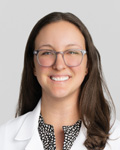
Emma Griffith, DO
Hometown: Riverview, FL
Medical School: Edward Via College of Osteopathic Medicine - Carolinas Campus
Residency: University of Florida Health – Jacksonville
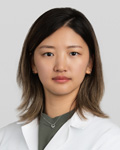
Seohyeon “Sio” Im, MD
Hometown: Seoul, Korea
Medical school: Soon Chun Hyang University School of Medicine
Residency: Mass General Brigham-Salem Hospital
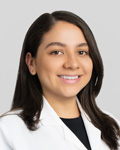
Stephanie Fabara Pino, MD
Hometown: Guayaquil, Ecuador.
Med School: Universidad Catolica de Santiago de Guayaquil.
Residency: UCF/HCA Florida Healthcare Gainesville Program.
2nd Year Fellows:

Raventh Yendamuri, MD
Hometown: Morristown, New Jersey
Med school: NEOMED
Residency: Cleveland Clinic Akron General
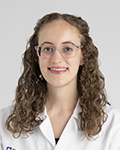
Ana Khazan, MD
Hometown: Whitehouse, Ohio
Med school: University of Toledo College of Medicine
Residency: University Hospitals Cleveland Medical Center

Maria Vega Brizneda, MD
Hometown: Bogota, Colombia
Med school: Universidad de los Andes
Residency: Cleveland Clinic Main Campus
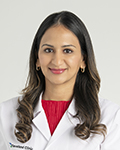
Deepali Boothankad Sharath, MD
Hometown: Bangalore, India
Med school: Vydehi Institute of Medical Sciences and Research Center, Bangalore, India
Residency: TriHealth Good Samaritan Hospital, Cincinnati, Ohio
Transplant Fellows:
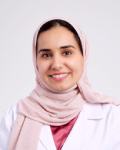
Mayyadah Alabdely, MD
Hometown : Riyadh, Saudi Arabia
Medical School : King Saud University
Residency: Case Western Reserve University / UH CMC
Alumni
We take pride that 18 of our staff are CCF ID graduates!
Class of 2025
- Mayyadah Alabdely, MD: Transplant ID Fellowship at Cleveland Clinic
- Caroline Feigert, DO: Allina Health, Abbott Northwestern Hospital, Minneapolis, Minnesota
- Lana Hasan, MD: Staff, Cleveland Clinic
Class of 2024
- Thomas Crilley, MD: Wake Forrest School of Medicine
- Andrea Calderon, MD: Monument Health – Rapid City Hospital
- Cindy McCartney, MD: Henry Ford Hospital
- Lana Hasan, MD: Transplant ID Fellowship at CCF
Class of 2023
- Caitlin Blaskewicz – Cleveland Clinic Main Campus
- Lalithaa Thirunavukarasu Murugan -University of Utah
Class of 2022
- Tripti Adhikari- McLaren Health Care.
- Supriya Singh- University of Tennessee (Chattanooga)
- Jessica Erickson- Cleveland Clinic Main Campus
- Juliann Ek- Department of the Navy
Class of 2021
- Nithin Kunnathu Puthanveedu- OSF Healthcare
- Francisco Marco Canosa- Cleveland Clinic Main Campus
Class of 2020
- Ryan Miller- Cleveland Clinic Main Campus
- Vinh Dang- Cleveland Clinic Main Campus
- Anita Modi- Cleveland Clinic Main Campus
How to Apply
Our program is enrolled in the NRMP match and accepts applications through ERAS. We sponsor both H1b and J1 visas.
ERAS ID: 1463812156
Requirements:
- Completion of a US Internal Medicine Residency is required for the Infectious Diseases Fellowship Program at the Cleveland Clinic.
- Four letters of recommendation, one needs to be from your Internal Medicine Residency Program Director
- MSPE.
- Personal statement describing your career goals.
- Compete ERAS application.
For information about your benefits please visit:
Please contact us for more information on how to apply.
April Spivey,
Administrative Program Coordinator Cleveland Clinic
Infectious Disease Dept.
9500 Euclid Ave., Mail G-21
Cleveland, OH 44195
Email: spiveya@ccf.org
Comments From Current Fellows
Comments from current fellows about the Infectious Disease Fellowship Program:
“From the very first day, I felt so welcome and included within the Fellowship Program and the entire Infectious Disease Department. The collaborative atmosphere is a unique aspect of the Department at Cleveland Clinic; the staff are all very approachable and eager to teach in addition to our frequent didactics. I have already been exposed to a wide array of pathology at Main Campus with great continuity in patient care because of our rotation structure. We also have the ability to tailor our schedule to our specific interests within Infectious Disease, such as Transplant or Endocarditis. I'm so thankful for this opportunity!”
-Emma Griffith, DO,
2025-2026 First Year Fellow
“As I was looking for a program that offered both strong clinical training and robust research opportunities, I found exactly that at Cleveland Clinic. The breadth of clinical exposure, mentorship, and research support exceeded my expectations — which is why I chose to stay for an additional third year to specialize in Transplant Infectious Diseases.”
-Mayyadah Alabdely, MD
2025 Fellowship Graduate, Third year Transplant Infectious Disease Fellow
“The Infectious Diseases Fellowship Program provided me with a unique experience for clinical training. With many years of experience training specialists in the field, the program works as a well-oiled machine in a department where every member is invested in the educational experience of their trainees. There are many aspects that make this program special including the daily educational conferences that serve as the foundation around the incredibly varied clinical provided by the different consult teams in which each fellow has the opportunity to take part, working hand in hand with field experts in the areas of cardiovascular infections, bone and joint infections, transplant infectious diseases, infections in other immunocompromised host and our unique team focused on infections of the neurological system. This training is complemented with many opportunities for elective rotations, clinical research and other master’s in medical educational development, including a Master's in Medical Education, additional training in Medical Microbiology and Transplant ID. Overall, the program provided me with all the tools needed for me to grow as a specialist in the field, ready for independent practice.”
-Francisco Marco Canosa, MD
2021 Fellowship Graduate, Staff Appointment
"During the first week of training, we were given the opportunity to complete a course week. We had dedicated time to participate in the SHEA infection control course and had specific reading assignments. This week prepared us to be successful on our clinical rotations and allowed us the time to feel comfortable at the beginning of the fellowship."
- Bethany Lehman, DO
2019 Fellowship Graduate, Staff Appointment
"Cleveland Clinic provided me with the opportunity to complete my General ID and Transplant ID fellowship in a combined 2-year program. Throughout that period, I was exposed to transplant patients with a variety of organ transplantations, including heart, lung, multi-visceral, kidney and face! I was fortunate to have one of the best Transplant ID mentors that I could have wished for, with whom I easily connected and who helped me solidify my interest in invasive fungal infections. I had the opportunity to complete multiple Transplant ID research projects, win awards, and present at the IDSA and ATC national meetings! I am grateful to Cleveland Clinic for the opportunity to pursue my fellowship here. I am proud to call myself a CCF ID Alum!"
- Habiba Hassouna, MD
2018 Infectious Disease/Transplant Graduate
"I was fortunate to spend 2 weeks in the Research Institute of Tropical Medicine in the Philippines. This rotation, which is part of our fellowship curriculum, is an amazing opportunity to obtain experience in a wide variety of infections that are not commonly seen in our training such as rabies, leprae, parasites, among others. Furthermore, it allows us to learn about the practice of infectious diseases in resource-limited settings. Our program encourages all fellows to take part in this rotation, and I believe it is one of the greatest assets of this program."
- Karyna Neyra, MD
2018 Infectious Disease/Transplant Graduate
